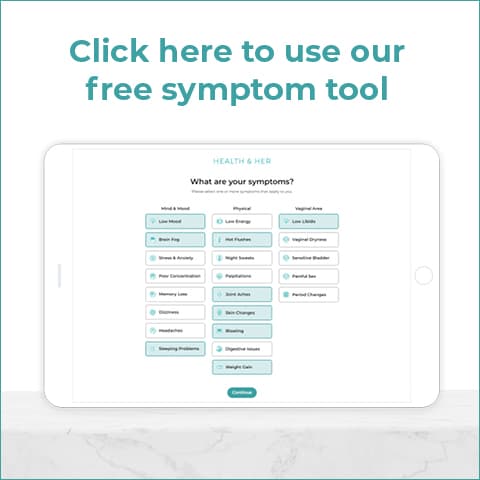Female sexual desire can be fickle at the best of times. Frustratingly, it can be thrown off course by a range of things including your hormones, stress, tiredness, illness, certain medications (including some SSRI antidepressants, codeine, beta blockers and some blood pressure medications), feeling taken for granted by a partner, depression, feeling fat or even something as simple as eating or drinking too much. It is completely normal for a woman’s libido to wax and wane during the course of her life, and it is unrealistic to expect every sexual encounter to set the world on fire, but that doesn’t mean we don’t want help igniting the spark from time to time. And whilst there is no prescription for what constitutes a ‘normal’ sex drive (you know what is ‘normal’ for you) if a dwindling libido is troubling you there are proven ways to give it a bit of encouragement.
1. Nibble on these…
Whilst there is no one food that is miraculously going to awaken a low libido not getting a healthy balance of nutrients can certainly contribute to a lack of interest in sex. Eating a nutrient-dense diet like a Mediterranean inspired one should help to keep you generally well whilst helping to maintain a healthy weight (being underweight or overweight can adversely affect sex drive). There are also some foods which are said to have so-called aphrodisiac qualities such as oysters and shellfish which are loaded with zinc, a mineral known to support testosterone levels - a hormone which plays a significant role in female libido, driving desire, arousal and performance (and which is known to decline around the time of the menopause). Of course, if you don’t like oysters or shellfish it’s not going to be an aphrodisiac for you so other zinc-rich foods include beef, pork, poultry, pumpkin seeds, cashew nuts and oats. Health & Her Nutritionist Helen Roach explains more about testosterone production and how levels can fall with age, stress, being overweight and lack of sleep and gives more key foods that help to boost testosterone in menopausal women. Other foods which have traditionally been said to help enhance sex drive include dark chocolate (which contains the chemical phenylethylamine dubbed the ‘love drug’) and fruits like pomegranates, figs and strawberries. Research also suggests watermelon can have a positive effect on libido by increasing blood flow to the genitals1. Why and how? Watermelon contains a phytonutrient called citrulline which the body converts to an amino acid called L-arginine which then helps nitric oxide levels in the body. Nitric oxide widens the blood vessels, enhancing blood flow to the genitals helping to increase vaginal lubrication and arousal2. L-arginine is also found in most protein-rich foods including eggs, fish, meat, poultry, soy, pulses, nuts and seeds and dairy products.
2. Try an arousing herb
Many women are increasingly turning to natural supplements to help support their libido and one new poster herb credited with igniting sexual desire is Tribulus terrestris. A recent study suggests3 it improves female sex drive by supporting testosterone levels. Other plant based ingredients to look out for in supplements include Maca root which research suggests can also improve libido with one study concluding it could help reduce antidepressant-induced sexual dysfunction in postmenopausal women4. Another helpful ingredient appears to be Red Clover, a phytoestrogen (plant-based compounds which mimic the action of oestrogen in the body), which has been linked to improved libido and the relief of vaginal dryness5. If sex has become increasingly uncomfortable for you because of a lack of vaginal lubrication, you might also benefit from a supplement containing Omega 7-rich Sea Buckthorn oil which has been shown to ease vaginal dryness in postmenopausal women6. . Taking this in conjunction with using a physical vaginal moisturiser or lubricant (available without a prescription) can support your vaginal lining and should make sex increasingly more comfortable and pleasurable for you.
3. Please yourself
Dr Hannah Allen, a GP with a specialist interest in women’s health and menopause says, ’I always suggest to my female patients who are concerned about their loss of libido to concentrate more on themselves and what they want and need. I encourage them to nurture their own wellbeing, really engage with what they enjoy and what makes them feel better – and if this involves exercise and them producing more happy hormones and endorphins in the process, even better. This, I find, helps them to think how they feel about themselves emotionally, physically and sexually. And I also try to encourage them to add something new or different to their relationship, for example, like bringing dating back into the equation.’
4. Keep a lid on the wine
One glass or two to loosen your inhibitions and can go down a treat but any more alcohol is likely to impair performance by affecting erectile function in a male partner and/or inhibit the ability to orgasm in both women and men. This is because alcohol can lower testosterone levels and dampen your nervous system which can make it harder to become aroused. Drinking too much can also make you feel sick, dehydrate you and contribute to vaginal dryness.
5. Relax
Research suggests whilst men typically use sex as a way to de-stress and unwind, women are more sensitive to its effects (or possibly just have more to stress about) and find it tends to interfere with their ability to switch off and enjoy the moment8. Meditation, breath exercises and yoga can be helpful tools for reducing stress (you can find some of these tools on the free Health & Her app) but another stress-reduction technique that has been found to help increase desire, arousal and sexual satisfaction in women is mindfulness – the ability to fully focus on the moment whilst being ultra- aware of your thoughts and bodily sensations8. It is said to work by helping women feel more in tune with their bodies during sex.
6. Less meat – more veg
In a fascinating piece of new research from Stanford University revealed in the 2024 Netflix documentary series You Are What You Eat,9 women who ate a vegan diet for two months were found to experience an increased libido. The study was carried out on two sets of identical twins who had their arousal levels recorded whilst watching pornography of their choosing. The experiment was conducted before two of the twins switched to a well-planned vegan diet (no animal-derived products but plenty of healthy plant-based ones like leafy greens, figs, strawberries, pumpkin seeds, nuts and pulses) and then again eight weeks after they had been on the vegan eating plan. How was it for them? The women on the vegan diet were found to have a significant improvement in arousal and libido vs. the twins on the omnivore diet.10
7. Practice
It might seem counterintuitive if you are not in the mood for sex to suggest doing it more but the more you think about it and do it, the more you might want it and enjoy it. Some women can find if they masturbate or initiate sex with a partner, even if they can take it or leave it at the beginning, they do get into it and are reminded of why it is a pleasure. If life just tends to get in the way of you finding a moment in the day to do it, it might help to schedule time for sex. This might not seem like the most romantic of things to do but it can be helpful to get over the idea that sex has to always be spontaneous. It can also be useful to bear in mind that not every intimate or romantic encounter has to end in sex. Giving each other a massage or just having a long cuddle might provide all the intimacy you need.
8. Get to the naked truth
Not only can your libido affect your relationship but your relationship can obviously affect your libido. Learning to listen and communicate effectively about sex with your partner should make it easier and more enjoyable and there are helpful hints from Relate counsellors here for ways to approach this. After all, if you are having bad sex, you are going to want it less. Arguably, one of our biggest modern passion killers is the mobile phone – if you or your partner are permanently glued to a screen you are not really engaging with each other in any meaningful or mindful way. So put your phones down, leave them at home and schedule regular trysts where you go out, flirt and remind yourself of what attracted you to your partner in the first place. When you are both relaxed and not angry, try to air any grievances and underlying relationship issues like resentment towards your partner (which tends to result in a kind of ‘well you don’t do anything for me, so I am not doing anything for you’ sexual stand-off). Then hopefully you can ease the conversation into what you want more of in bed. If you feel uncomfortable doing this, find a book or film that shows some of the things you might want to explore, and which can ignite a conversation about it.
9. Go shopping for intimacy
Investing in a small stash of accessories to help you anticipate and potentially improve sex - underwear that makes you look and feel good, a lubricant to help with arousal and lubrication and a vibrator or other sex toys to help you become more easily aroused and able to orgasm – can all help you to ignite more of a sexual spark.
10. Shape up for it.
It is difficult to find something that exercise doesn’t improve, and sexual desire and performance is no exception. Not least because physical exercise improves cardiovascular health and blood flow which is essential for sexual pleasure – helping to improve clitoral and vaginal blood flow necessary for arousal and orgasm. More than this exercise should help to keep your weight down and you more toned and in better shape (unsurprisingly, one small study involving heterosexual women has shown a link between poor body image and lack of sexual desire)11. In short, the better you feel about how you look the more you are likely to want sex.
11. Stimulate your touch points.
It’s not something you automatically think of as rekindling a dormant sex drive but interestingly acupuncture has been shown to help some women do just that. In one small study12 women who described themselves as having a low libido went for acupuncture sessions twice a week for five weeks. At the end of the five-week trial they reported an increase in desire, arousal and orgasm.
If you need some persuasion as to why a healthy libido might be a good idea, here's 6 healthy benefits of having sex.
References
1. https://today.tamu.edu/2008/07/01/watermelon-may-have-viagra-like-effect/2. https://www.ncbi.nlm.nih.gov/pmc/articles/PMC2656393/
3. https://www.ncbi.nlm.nih.gov/pmc/articles/PMC4045980/
4. https://www.ncbi.nlm.nih.gov/pmc/articles/PMC4411442/
5. https://www.tandfonline.com/doi/abs/10.3109/01443615.2015.1049249?tab=permissions&scroll=top
6. https://www.sciencedirect.com/science/article/pii/S0378512214002394
7. https://link.springer.com/article/10.1007/s10508-018-1231-6
8. https://pubmed.ncbi.nlm.nih.gov/31570137/
9. https://www.netflix.com/gb/title/81133260
10. https://nypost.com/2024/01/05/lifestyle/horny-vegans-womens-libidos-surge-up-to-380-after-switching-to-plant-based-diet-study-shows/
11. https://www.ncbi.nlm.nih.gov/pmc/articles/PMC5005305/
12. https://www.ncbi.nlm.nih.gov/pmc/articles/PMC5005297/



